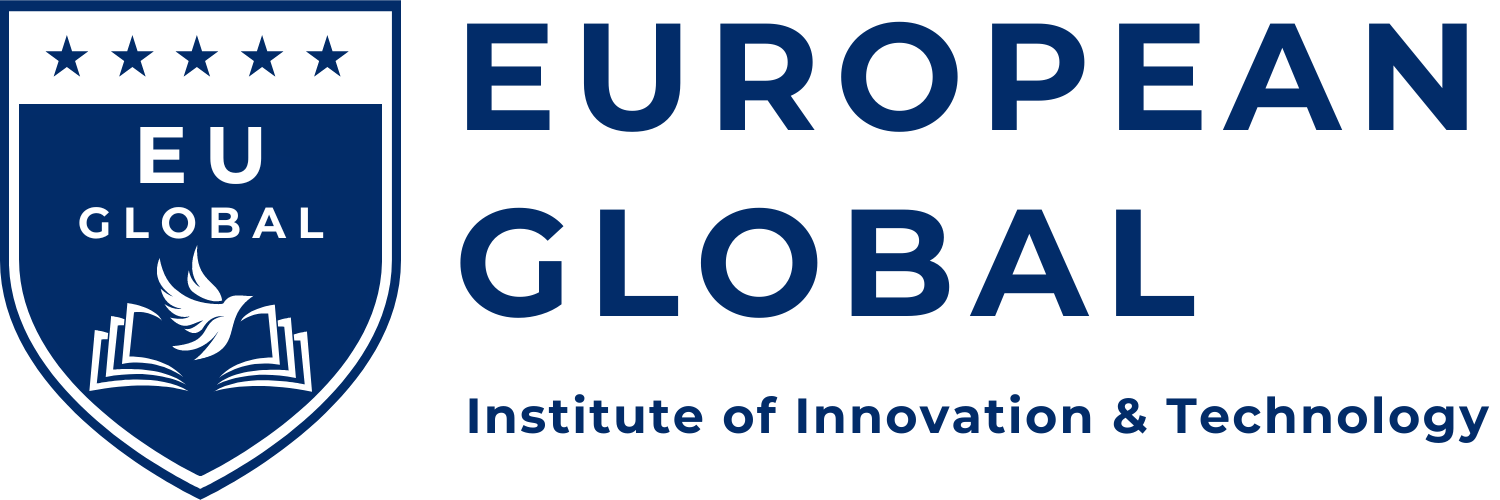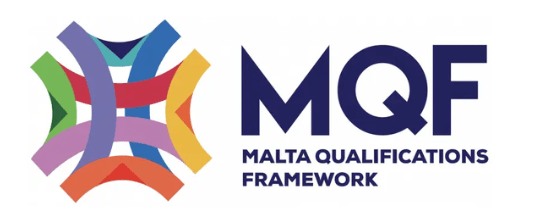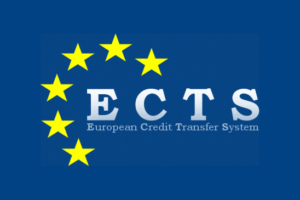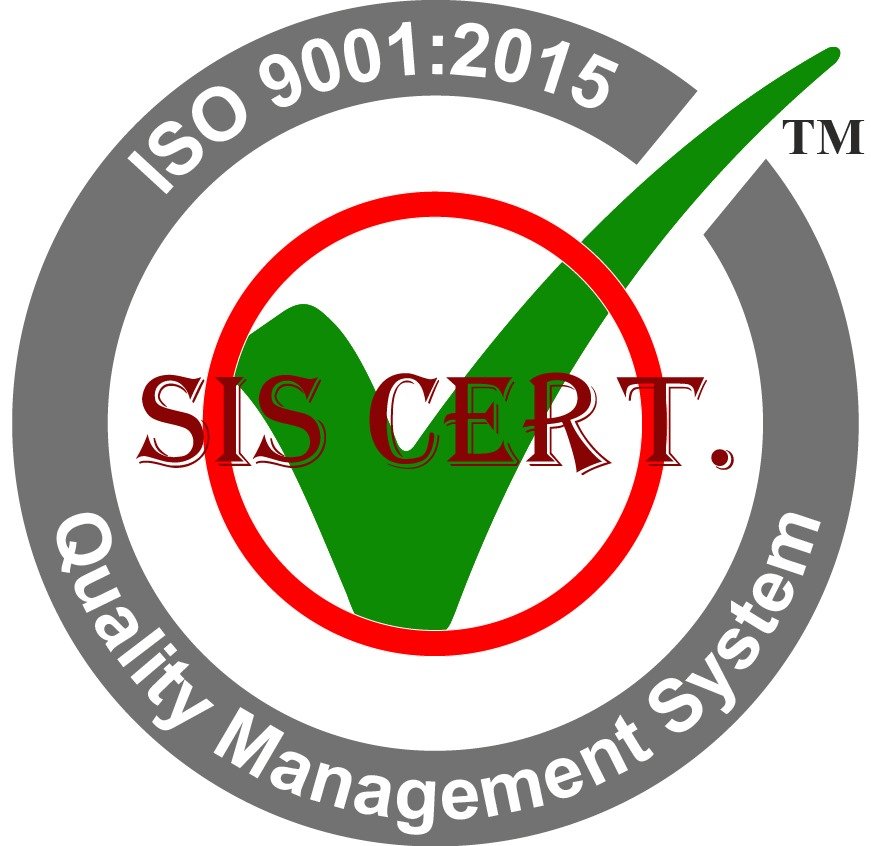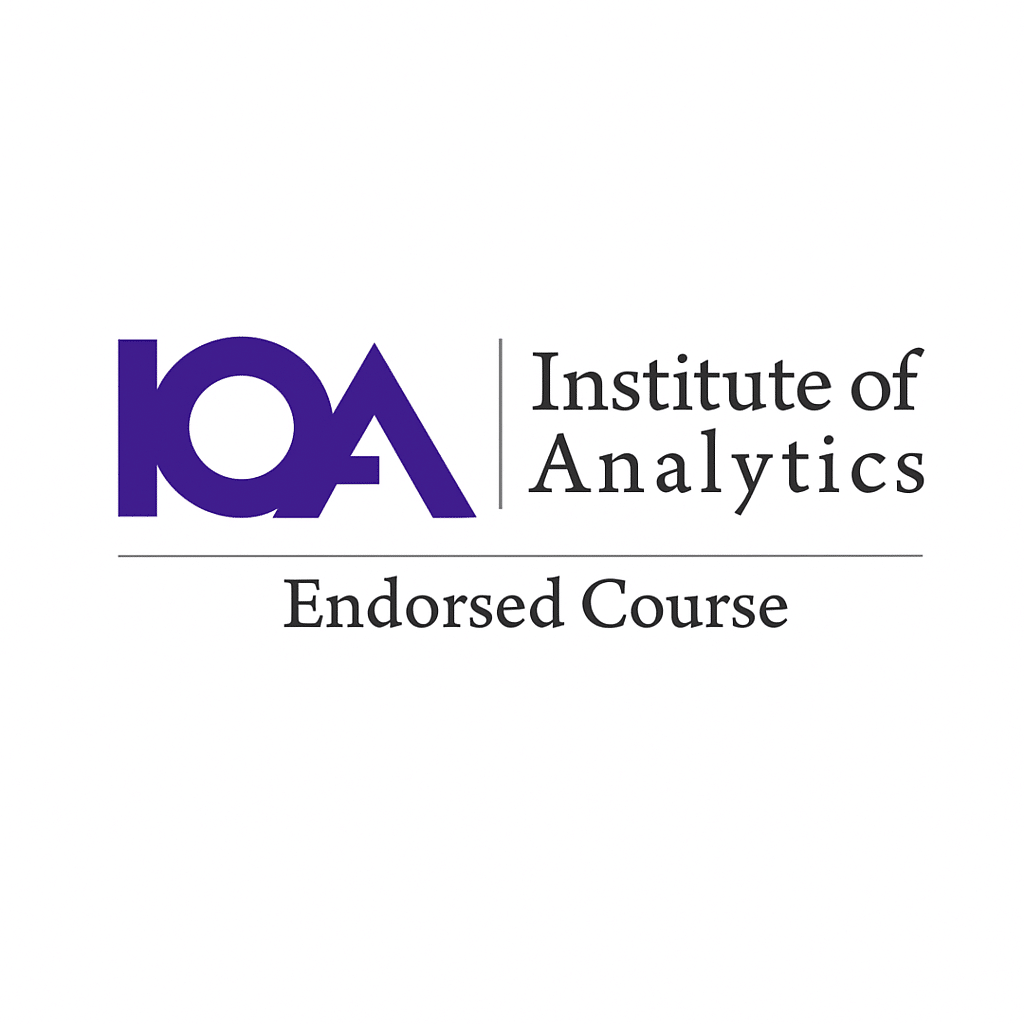Conditional scholarship up to 20%
⚠ Alert: Offer available till 15th of February 2026
Features of MBA in Health Economics & Healthcare Management
Learning Formula
Blended (Live Online)
Intakes
April/October
Language
English
Get to know more about the MBA in Health Economics & Healthcare Management
Program Details
- Overview
- Why Choose Us?
- Tuition Fees & Program Structure
- Program Awarding Institutions and Title
- Program Completion
- Learning Method
- Benefits
- Learning Outcomes
- Engaging Program Content
- We Support Learning
- Eligibility and Application Process
- Career Pathways
- Sample Certificate
- Faculty
Docenti Global Business School Partners with European Global Institute of Innovation & Technology to Launch Global MBA in Health Economics & Healthcare Management
In a forward-looking academic alliance, Docenti Global Business School has joined forces with the European Global Institute of Innovation & Technology to introduce the Global MBA in Health Economics & Healthcare Management. This distinguished program is crafted to develop visionary healthcare leaders equipped to navigate the complex intersection of economics, policy, and management in today’s rapidly evolving global health landscape.
With healthcare systems worldwide facing mounting pressures from technological disruption, demographic shifts, and economic constraints, the demand for strategic leadership in health management has never been greater. Research highlights that organizations adopting data-driven healthcare strategies achieve up to 21% higher operational efficiency and 17% improved patient outcomes compared to their counterparts. Additionally, over 65% of healthcare executives now view economic and policy expertise as pivotal to driving innovation and sustainable performance within their institutions.
This innovative MBA program combines academic rigor with practical, real-world insight. Participants gain a comprehensive understanding of critical issues such as health policy reform, cost-effectiveness analysis, digital health transformation, and strategic healthcare delivery. Through the joint expertise of two leading institutions, students benefit from globally recognized faculty, advanced analytical tools, and access to an extensive professional network across healthcare and biotechnology sectors.
Graduates of the program will emerge as strategic leaders capable of aligning healthcare strategies with economic objectives, optimizing resource allocation, and guiding organizational transformation in diverse healthcare environments. The curriculum emphasizes evidence-based decision-making, leadership development, and sustainability in healthcare systems, ensuring participants can drive measurable improvements in both organizational and population health outcomes.
This collaboration marks a significant milestone for professionals aspiring to expand their influence in global healthcare leadership. The Global MBA in Health Economics & Healthcare Management offers an unparalleled opportunity for ambitious practitioners to enhance their strategic, financial, and operational acumen—empowering them to lead with impact in an increasingly complex and technology-driven health economy.
Our Faculty
Our program is led by highly qualified and experienced faculty who bring a deep understanding of Health Economics and Healthcare Management. They are passionate about teaching, mentoring, and preparing professionals to apply strategic, evidence-based principles that enhance leadership and decision-making across healthcare systems worldwide.
Our Technology
We deliver the program through cutting-edge digital platforms and innovative learning technologies. The curriculum integrates the latest trends in digital health transformation, data analytics, and AI-driven healthcare strategies, ensuring participants gain the technical and analytical tools required to lead effectively in modern healthcare environments.
Our Student Support
Students benefit from comprehensive academic and professional support services, including personalized advising, career coaching, and access to global healthcare management resources. Whether studying in Lagos or from anywhere in the world, learners receive continuous guidance designed to help them excel throughout their MBA journey.
Real-World Impact: Transform Healthcare Challenges into Opportunities
Empower yourself to tackle complex healthcare and policy challenges with confidence. Through the MBA in Health Economics & Healthcare Management, participants acquire the skills to design sustainable solutions that drive innovation, efficiency, and organizational transformation across the healthcare sector.
Drive sustainable healthcare innovation and leadership excellence with a program designed for forward-thinking professionals seeking to create lasting impact.
Global Competence: Lead in a Connected World
Develop cross-cultural intelligence and global healthcare strategies through the prestigious programs of the European Global Institute of Innovation & Technology—including its MBA, Master’s, and DBA offerings.
Gain a strong understanding of international healthcare systems, regulatory frameworks, and global health economics trends, preparing you to manage organizations and teams across borders.
Lifelong Learning: Stay Ahead in Healthcare Leadership
Continue your professional growth beyond graduation through executive healthcare workshops, international networking events, and specialized leadership seminars.
Engage in global healthcare conferences and collaborative industry partnerships hosted by leading academic and healthcare institutions worldwide.
Return on Investment: Success You Can Measure
Apply your advanced management and economic skills immediately to achieve measurable impact within your organization and career.
Contribute strategically to healthcare excellence and financial sustainability with an affordable, internationally recognized MBA in Health Economics & Healthcare Management.
Exit Awards / Qualifications
The program awards 90 ECTS credits and holds WES recognition. Accredited learners can earn ECTS credits per module, enabling flexible study options, deferred progress, and advanced re-entry pathways that adapt to professional schedules and goals.
Programme Structure & Key Details
Duration Options:
Accelerated Track: 1 Year
Full-Time Track: 18 Months
Part-Time Track: Up to 3 Years
Start Date:
Commences on the first working day of every month
Application Deadline:
Rolling admissions — applications accepted year-round
Credit Load:
90 ECTS Credits (European Credit Transfer and Accumulation System)
Language of Instruction:
English
Qualification Level:
Master’s Degree (EQF Level 7)
Study Commitment:
15–40 hours per week, depending on study mode
Teaching & Learning Format:
Asynchronous online learning combined with live, interactive MasterCamps led by industry experts and faculty.
- Tuition : 3, 800, 000.00
- Payment structure : Full & Installmental payment structure
Awards & Qualifications
Our strategic accreditation enables every learner to earn ECTS credits for each module completed, providing full flexibility throughout their academic journey. This system allows students to pause, defer, or rejoin the program seamlessly, while retaining previously earned credits. These ECTS credits can also be transferred or applied toward advanced entry into higher-level qualifications within the European education framework.
Primary Award:
MBA in Health Economics & Healthcare Management
Awarded by the European Global Institute of Innovation & Technology, Malta
Additional Certification:
Certificate of Completion in Lifelong Learning – MBA in Health Economics & Healthcare Management
Awarded by Docenti Global Business School
Awarding Body:
European Global Institute of Innovation & Technology (EGIIT), Malta
Programme Completion Structure:
Each module is designed to be completed within 5 weeks (full-time) or 8–10 weeks (part-time). Both study modes follow the same academic framework, differing only in the weekly learning hours dedicated by the participant, as outlined in the program duration section.
Credit Requirement:
MBA in Health Economics & Healthcare Management – 90 ECTS Credits
The program consists of three semesters, which can be completed in 12 months through the accelerated pathway or extended over 18 to 36 months for full-time and part-time options.
Capstone Consulting Project
The Capstone Consulting Project represents the culminating experience of the Global MBA in Health Economics & Healthcare Management. This applied project allows students to integrate and demonstrate the full range of strategic, analytical, and leadership competencies acquired throughout the program.
Working directly with healthcare organizations, government agencies, NGOs, and industry partners, participants engage in real-world consulting assignments designed to address complex health management and economic challenges. The project emphasizes evidence-based problem solving, innovation, and practical impact within dynamic healthcare environments.
Project Overview
Students collaborate in multidisciplinary teams to analyze and develop actionable solutions for critical healthcare issues such as:
Health systems efficiency and financial sustainability
Cost-effectiveness and health outcomes evaluation
Public health policy and resource allocation
Digital health transformation and data analytics integration
Hospital performance optimization and patient care improvement
Learning Outcomes
Upon successful completion of the Capstone Consulting Project, graduates will demonstrate the following advanced competencies:
1. Strategic Healthcare Problem-Solving
Diagnose complex healthcare and policy challenges through economic and managerial analysis.
Formulate innovative, evidence-based strategies to improve health system performance.
Assess and compare alternative policy or management approaches for optimal outcomes.
2. Advanced Project Leadership in Healthcare
Apply agile project management methods to deliver high-impact health initiatives.
Lead diverse, cross-functional teams toward measurable healthcare improvements.
Manage all project stages — from research design to implementation and evaluation.
3. Executive Communication & Policy Influence
Present compelling, data-driven health policy and management proposals to senior stakeholders.
Translate technical and economic insights into strategic recommendations.
Influence organizational and governmental decision-making through well-supported analyses.
4. Change Management & Innovation in Health Systems
Design frameworks for sustainable health system transformation.
Measure and communicate the ROI of healthcare investments and innovations.
Overcome institutional and policy barriers to organizational change.
5. Global Healthcare Leadership
Develop culturally sensitive health strategies for diverse populations and international contexts.
Navigate global health regulations, financing mechanisms, and compliance requirements.
Integrate global health priorities with local system needs to achieve equitable outcomes.
Credit Allocation
Capstone Consulting Project – 18 ECTS Credits
Learning Format & Delivery
Asynchronous / Blended Learning
The Global MBA in Health Economics & Healthcare Management is delivered through a flexible blended learning model, combining self-paced study with live, interactive sessions. Participants access course materials via the E-Campus of the European Global Institute of Innovation & Technology and the Docenti Global Business School Learning Management System (LMS). Live classes and faculty-led discussions are conducted through advanced virtual conferencing platforms, ensuring a seamless and engaging learning experience.
Coursework-Based Curriculum
The program follows a coursework-driven approach, integrating applied projects, case studies, and industry-relevant assignments that reflect real-world healthcare and economic challenges. Students engage in experiential learning that bridges theory with practical application, preparing them for leadership roles across the global healthcare sector.
Assessment Methods
Evaluation is continuous and performance-based, comprising:
Individual and group assignments
Capstone Consulting Project that synthesizes learning outcomes across all modules
Collaborative Global Learning
Students benefit from a vibrant international learning community. Through live webinars, group projects, and networking sessions, participants collaborate with peers, faculty, and healthcare professionals from around the world—enhancing global perspectives and intercultural understanding.
Expert-Curated Content
All course materials are developed and reviewed by experienced professors and industry experts, ensuring academic rigor and practical relevance. Learners have 24/7 access to digital resources, case studies, and interactive modules to support continuous professional growth.
Global Accessibility & Accreditation
This program can be studied from anywhere in the world, providing a flexible pathway to a globally recognized MQF/EQF-accredited degree. The qualification upholds the highest European academic standards, enabling graduates to pursue advanced studies or professional opportunities internationally.
Programme Benefits
1. Designed for Experienced Professionals
Tailored for executives aged 25 and above with a minimum of two years of professional experience, this program is ideal for emerging leaders seeking to advance their expertise in health economics and healthcare management.
2. Prestigious & Globally Recognized Qualification
Earn an internationally respected degree with WES recognition, fully accredited by the Council for Higher Education Development (USA) and approved by the Malta Further & Higher Education Authority (MFHEA).
3. Accredited and Globally Benchmarked
The program awards 90 ECTS credits and is recognized as a Level 7 Master’s Degree under both the Malta Qualifications Framework (MQF) and the European Qualifications Framework (EQF)—ensuring international academic and professional credibility.
4. International Exposure & Networking
Gain firsthand global experience through international immersion and business matching programs in destinations such as Portugal, Spain, Thailand, Kigali, China, Malta, and Canada. These opportunities expand your global perspective and professional network.
5. Practical, Implementation-Based Learning
Experience an applied, collaborative learning model focused on implementing strategies within real healthcare and business environments. Every module emphasizes practical outcomes, ensuring direct workplace relevance.
6. AI Literacy & Digital Readiness
All graduates receive a foundational understanding of AI applications and data-driven decision-making—key competencies for managing healthcare organizations in the era of Industry 4.0.
7. Innovative Learning Methodologies
The program integrates storytelling and case-based learning to enhance comprehension and engagement, helping participants connect theory with real-world challenges in healthcare leadership.
8. Flexible Financial Options
Benefit from flexible payment structures that make quality global education accessible to diverse professionals.
9. Lifetime Learning Resources
Enjoy lifetime access to course videos, reading materials, and digital content through the Docenti LMS, as well as full access to the E-Campus and E-Library of the European Global Institute of Innovation & Technology.
10. World-Class Faculty
Learn from an international faculty team with over 20 years of combined industry and academic experience, bringing global expertise and local relevance to every session.
11. Real-World Case Studies
Engage with global healthcare and business case studies designed to develop practical insights and strategic thinking capabilities.
12. Graduate Success & Reputation
The program has received consistently outstanding feedback from alumni for its quality, flexibility, and impact on career growth.
13. Personalized Mentorship & Career Support
Benefit from dedicated academic supervisors, career coaching, internship placement services, and industry mentorship to guide your professional journey.
14. Global Alumni Network
Join the exclusive alumni community of the European Global Institute of Innovation & Technology, connecting with senior professionals, healthcare leaders, and innovators worldwide.
15. Prepare to Lead Globally
Graduate as a strategic healthcare leader ready to shape global health policy, drive organizational innovation, and make measurable impact across the healthcare ecosystem.
Learning Outcomes
After completing the Global MBA in Health Economics & Healthcare Management, graduates will demonstrate advanced professional, knowledge, and skills-based competencies required to lead, innovate, and influence within the global healthcare sector.
Professional Application (PA)
PA1: Critically evaluate complex and uncertain healthcare and economic scenarios, integrating multidisciplinary perspectives to make strategic, evidence-based decisions with limited or ambiguous information.
PA2: Navigate dynamic healthcare environments by setting strategic priorities, formulating innovative policies, implementing adaptive management strategies, and evaluating performance under evolving economic and regulatory conditions.
PA3: Demonstrate advanced leadership and team-building capabilities within multicultural healthcare systems, effectively managing stakeholder engagement, collaboration, and conflict resolution.
PA4: Foster lifelong learning and professional growth through reflection and research-driven innovation, applying new knowledge to solve emerging challenges in healthcare management and health economics.
PA5: Establish performance benchmarks, mentor diverse teams, and lead continuous improvement initiatives that align healthcare delivery and financial sustainability objectives.
PA6: Address ethical dilemmas and governance challenges involving competing stakeholder interests and cross-border health systems while upholding the highest standards of ethics and compliance.
PA7: Conduct rigorous applied research in health economics and healthcare management, critically reviewing scholarly and industry literature to contribute innovative insights and best practices to the field.
Knowledge Outcomes (PB)
PB1: Critically assess how contextual factors — including legal, ethical, economic, social, technological, environmental, and international forces — influence healthcare organizations and policy decisions.
PB2: Integrate multidisciplinary approaches from finance, economics, data analytics, and ethics to drive sound decision-making in healthcare strategy and operations.
PB3: Evaluate the effectiveness of healthcare management strategies, incorporating technology, ethical frameworks, and data analytics to optimize patient outcomes and organizational performance.
PB4: Develop and implement adaptive policies and strategies for healthcare systems, applying cutting-edge theoretical and practical knowledge in global health economics and management.
PB5: Analyze and improve healthcare delivery processes through advanced problem-solving and decision-making models grounded in quantitative and qualitative evidence.
PB6: Design and adapt organizational frameworks to anticipate policy shifts, market trends, and systemic healthcare challenges in a rapidly changing environment.
PB7: Critically engage with academic and professional literature, applying research methodologies to create innovative frameworks for health economics and management.
PB8: Apply principles of ethical leadership, corporate governance, and sustainability to promote responsible healthcare practices and organizational accountability.
PB9: Integrate specialized knowledge in health economics and healthcare management to address sector-specific challenges and leverage emerging global opportunities.
Note: PB1–PB7 are required for Diploma exit; PB1–PB9 are required for the full Master’s degree (see Exit Awards section for details).
Skills Outcomes (PC)
PC1: Analyze and synthesize complex, multidisciplinary healthcare data into actionable insights, evaluating their social, cultural, and economic implications.
PC2: Apply advanced quantitative and qualitative research techniques to investigate healthcare and economic challenges, producing original, evidence-based conclusions.
PC3: Communicate research-informed insights effectively to diverse audiences, demonstrating leadership in stakeholder management, negotiations, and decision-making across the healthcare ecosystem.
PC4: Innovate and adapt strategically for ongoing professional development, fostering continuous learning and a sustainable competitive advantage in healthcare management.
PC5: Lead high-performance, interdisciplinary teams through collaboration, critical analysis, and transformative decision-making within complex healthcare environments.
Note: PC1–PC2 are required for Diploma exit; PC1–PC5 are required for the full Master’s degree (see Exit Awards section for details).
Engaging Programme Content
The Global MBA in Health Economics & Healthcare Management offers a dynamic and interactive learning experience designed to combine academic rigor with real-world application. Learners engage through diverse, flexible formats that promote understanding, collaboration, and professional growth.
Video Lectures
Access high-quality, pre-recorded video lectures delivered by international faculty and healthcare experts. Study at your own pace and revisit lessons anytime to reinforce key concepts in health economics, policy, and management.
Interactive Learning Modules
Engage with multimedia-rich modules that include case studies, quizzes, scenario-based exercises, and interactive simulations. These components are designed to strengthen analytical thinking, problem-solving, and practical application of course material.
Live Webinars & Masterclasses
Participate in real-time online sessions led by distinguished faculty and industry professionals. These live webinars include lectures, open Q&A discussions, and collaborative workshops—many of which are recorded for later viewing to support flexible study schedules.
Guest Speaker Sessions
Gain valuable insights from leading professionals in healthcare, policy, and economics through exclusive guest lectures. These sessions expose students to current trends, emerging innovations, and best practices shaping the global healthcare landscape.
We Support Learning
At Docenti Global Business School and the European Global Institute of Innovation & Technology, we are committed to creating an engaging, supportive, and globally connected learning environment. Our approach ensures that every participant benefits from collaboration, innovation, and continuous personal growth throughout their MBA journey.
Collaborative Learning
Engage in interactive online discussions, group projects, and peer-to-peer feedback designed to foster collaboration and knowledge exchange. Students work together to explore solutions to global healthcare and economic challenges, learning from diverse perspectives and professional experiences.
Active Learning
Experience an immersive, hands-on approach to learning. You’ll apply theories to real-world healthcare cases, participate in problem-solving sessions, and analyze strategic issues to strengthen both analytical and decision-making skills.
Technology-Enhanced Learning
Our advanced digital platforms provide 24/7 access to learning materials, research databases, communication tools, and discussion forums. This seamless integration of technology supports flexible, self-paced study and continuous engagement with faculty and peers.
Global Learning Community
Become part of a diverse, international network of healthcare and business professionals. Interacting with classmates from multiple regions and industries broadens your worldview, enhances cultural intelligence, and strengthens your global leadership potential.
Admission Document Requirements
To be considered for admission into the Global MBA in Health Economics & Healthcare Management, applicants are required to submit the following scanned documents in clear and legible format:
1. Proof of Identity
A copy of the biographical page of a valid passport, national ID card, or driver’s license.
2. Academic Qualifications
Bachelor’s degree and official academic transcript in any discipline,
OREquivalent qualification at Level 6, such as a Higher National Diploma (HND) or a four-year undergraduate degree carrying a minimum of 180 ECTS credits.
3. Mathematics Proficiency Requirement
Applicants must demonstrate prior study of Mathematics at MQF Level 5 or equivalent, evidenced by:
An Undergraduate Diploma/Certificate, OND in Statistics, or completion of the Skill Development Program in Data Science Diploma,
ORVerified equivalent knowledge of mathematical principles such as linear algebra and calculus.
4. Statement of Purpose / Motivational Letter
A 200–300 word personal statement outlining your motivation for pursuing the MBA, professional goals, and how the program aligns with your career aspirations.
5. Passport-Size Photograph
A recent passport-size photo (in color, scanned or digital format).
Relationship to Occupations
Graduates who successfully complete the Global MBA in Health Economics & Healthcare Management will be equipped with the strategic, analytical, and leadership competencies necessary to assume advanced roles within healthcare organizations, public health systems, consulting firms, and policy institutions.
Below are potential career paths and corresponding job descriptions aligned with this qualification:
Healthcare Director / Head of Health Systems Management
Oversee healthcare operations, workforce planning, and policy implementation while driving improvements in quality, efficiency, and patient outcomes.
Chief Health Economist / Healthcare Strategy Officer
Lead economic and strategic decision-making across health organizations, optimizing resource allocation, cost-effectiveness, and long-term sustainability.
Global Health Program Manager
Manage international healthcare initiatives, partnerships, and development projects focused on public health, health equity, and cross-border collaboration.
Health Policy & Management Consultant
Provide strategic guidance to healthcare institutions, NGOs, and government bodies on health policy design, financing, and organizational development.
Hospital or Clinic Administrator
Direct the operational, financial, and administrative functions of healthcare facilities, ensuring compliance, patient satisfaction, and organizational efficiency.
Health Economics Analyst / Research Specialist
Conduct economic evaluations, cost-benefit analyses, and impact studies to inform decision-making in healthcare systems and policy environments.
Public Health and Development Advisor
Work with international organizations to shape and implement sustainable health policies, global development initiatives, and evidence-based interventions.
University Lecturer / Academic Researcher
Teach and conduct research in health economics, healthcare management, and policy analysis at academic or professional institutions.
Healthcare Data & Policy Analyst
Use data analytics and economic modeling to evaluate healthcare system performance, forecast trends, and develop data-driven solutions for policy improvement.
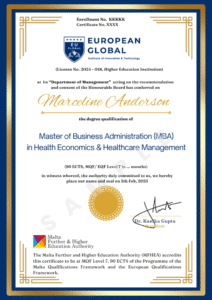

DR CHIZOBA NWABUNIKE FACULTY MEMBER DOCENTI GOBAL BUSINESS SCHOOL
Dr. Chizoba Nwabunike is a passionate and accomplished marketing and business leader with over 20 years of experience working across top brands in FMCG, betting, telecom, and fintech. Known for her creativity and strategic thinking, she has successfully led brand turnarounds and driven strong business growth. She holds a PhD in Business Administration, an MSc in Innovation Marketing, and an Executive MBA. As Managing Director of Rue Sage Media and Osis Foods Limited, and a Fellow of CIM, she blends deep academic knowledge with real-world leadership and executional excellence.
COURSE CONTENT (CORE MODULES 30 ECTS)
Module Overview: Management and Organizational Dynamics
This module offers a comprehensive examination of modern management practices and the intricate nature of organizational dynamics within today’s complex and rapidly evolving business landscape. It explores how effective management shapes organizational behaviour, culture, structure, and overall performance.
Through a balanced blend of theoretical insight and practical application, students will develop a deep understanding of how internal and external factors influence organizational success. The module emphasizes the manager’s role as a strategic leader—capable of fostering innovation, guiding teams, and aligning organizational objectives with broader business and societal goals.
Learners will critically analyze real-world case studies to understand leadership effectiveness, change management, motivation, and decision-making within diverse cultural and professional contexts. By the end of the module, students will be equipped to diagnose organizational challenges, influence behaviour, and drive strategic transformation across complex environments.
COURSE CONTENT (ELECTIVE MODULES 30 ECTS)
Module Overview: Financial Reporting and Managerial Accounting
This module provides an in-depth exploration of the theories and contemporary practices underlying financial reporting, managerial accounting, cost analysis, and valuation across diverse organizational contexts. It equips learners with the knowledge and analytical skills required to interpret and apply accounting information for effective decision-making and leadership in both for-profit and non-profit organizations, as well as within the public sector.
Students will develop a robust framework for understanding and utilizing accounting principles, standards, and tools in strategic management. The module emphasizes the application of financial ratios, performance indicators, and valuation techniques to assess organizational health and sustainability.
Through interactive activities and applied case studies, learners will engage in professional skill development, focusing on financial data interpretation, risk assessment, forecasting, and performance evaluation. The module also introduces practical insights into the preparation and analysis of financial statements, enhancing students’ ability to communicate financial results to stakeholders effectively and ethically.
In today’s rapidly evolving digital landscape, businesses must adapt their marketing strategies to effectively engage with consumers and drive growth. The Strategic and Digital Marketing module equips MBA students with the knowledge and skills required to navigate the complexities of digital marketing and leverage technology to achieve competitive advantage. This module offers a comprehensive exploration of digital marketing strategies, tools, and best practices, with a focus on strategic decision-making and management in the digital era. The module emphasizes the integration of digital marketing with overall business strategy, exploring how data-driven insights can inform marketing decisions, enhance customer engagement, and drive organizational performance.
Module Overview: Project and Operations Management
This module explores the strategic and operational foundations of project and operations management, emphasizing their critical role in achieving organizational excellence and competitive advantage. It is designed to equip students with a comprehensive understanding of the principles, frameworks, and analytical tools necessary to plan, execute, and optimize projects and operational processes across diverse industries.
Students will examine key themes including project management methodologies, operations strategy, process improvement, quality management, and supply chain optimization. The module highlights how to balance efficiency, innovation, and sustainability while delivering value to stakeholders.
Through applied learning and real-world case studies, participants will develop the skills to initiate, plan, monitor, and control projects to ensure timely delivery, budget adherence, and alignment with organizational goals. Additionally, they will gain insights into designing and managing operations that enhance productivity, service quality, and customer satisfaction.
By the end of this module, learners will be able to integrate project and operations management principles to drive strategic performance and operational excellence in a dynamic global business environment.
Module Overview: Corporate Finance and Financial Strategy
This module provides students with a comprehensive understanding of the financial challenges and decision-making processes faced by organizations at the executive and board levels. It is designed to develop the analytical and strategic capabilities required to engage effectively with finance and accounting professionals in complex business environments.
Students will gain a strong foundation in corporate finance theory, financial analysis, and strategic financial management, learning to evaluate key financial decisions related to investment, capital structure, risk, and valuation. The module explores how financial principles are applied to solve practical problems across the private, public, and non-profit sectors, with an emphasis on global financial dynamics and cross-border considerations.
By the end of this module, learners will be able to analyze financial statements, assess organizational performance, and apply strategic financial tools to support executive-level decision-making. They will also understand how financial strategies influence corporate growth, sustainability, and stakeholder value in an increasingly interconnected global economy.
Module Overview: The Dynamics of Strategy
This module provides an in-depth exploration of organizational strategy and strategic management, focusing on how managers develop, implement, and sustain strategies that drive long-term success. It emphasizes the importance of consistency, commitment, and adaptability in pursuing strategic goals within complex and competitive business environments.
Students will learn to analyze the external and internal factors that influence organizational performance, including environmental challenges, market dynamics, and resource constraints. The module explores how organizations can identify and leverage their unique resources, capabilities, and competencies to build and maintain a sustainable competitive advantage.
Through real-world examples and comprehensive case studies, learners will examine strategic decision-making processes, from formulation to execution. They will also reflect critically on different strategic frameworks and theories, gaining the ability to evaluate, design, and implement effective business strategies in both domestic and international contexts.
As the fifth core component of the MBA program, The Dynamics of Strategy integrates knowledge from previous modules, encouraging students to connect theoretical insights with practical applications in strategic leadership and organizational transformation.
Module Overview: Business Economics and Decision-Making
This module provides a comprehensive understanding of economic principles and analytical frameworks that underpin strategic business decision-making. It integrates key concepts from both microeconomics and macroeconomics, enabling students to analyze market behavior, interpret economic indicators, and assess the implications of government policies on organizational strategy.
Through applied learning and real-world case studies, students will develop the ability to evaluate economic trends, identify opportunities and risks, and make data-driven business decisions in an increasingly complex global environment. The module emphasizes the practical application of economic reasoning to issues such as pricing strategy, resource allocation, competitive positioning, and market forecasting.
By the end of this module, learners will be equipped to apply economic tools and quantitative techniques to enhance strategic planning, risk assessment, and performance optimization within diverse business contexts.
Module Overview: Ethical Leadership and Corporate Governance
This module offers a comprehensive examination of the principles, frameworks, and practices of ethical leadership and corporate governance in today’s dynamic global business landscape. It explores the moral and professional responsibilities of leaders and the governance mechanisms that ensure accountability, transparency, and integrity within organizations.
Students will analyze the relationship between leadership ethics, corporate culture, and governance structures, gaining the ability to evaluate how ethical conduct influences organizational performance and stakeholder trust. The module also emphasizes the role of governance frameworks—such as regulatory compliance, board effectiveness, and corporate social responsibility—in shaping sustainable business practices.
Through case studies, reflective analysis, and applied exercises, learners will develop the skills to navigate ethical dilemmas, make principled decisions under pressure, and lead organizations with authenticity and integrity. By the end of the module, students will be equipped to apply ethical reasoning and governance standards to complex managerial contexts, fostering responsible leadership in both local and global environments.
Module Overview: Leadership and Corporate Sustainability
This module provides an in-depth exploration of corporate sustainability and its integration with strategic leadership, focusing on how responsible leaders can drive sustainable business transformation. It examines the intersection of environmental stewardship, social responsibility, and economic performance, highlighting how effective leadership practices can align business objectives with broader sustainability goals.
Students will analyze frameworks and best practices that promote ethical governance, sustainable innovation, and stakeholder engagement. Through the study of global case examples, learners will develop a nuanced understanding of how leadership decisions impact both organizational performance and societal well-being.
The module emphasizes the critical role of leaders in embedding sustainability into corporate culture, policies, and strategy—equipping students to respond to pressing global challenges such as climate change, resource scarcity, and social inequality. By the end of the course, learners will be able to design and implement sustainability-driven strategies that enhance long-term value creation and contribute to the achievement of the UN Sustainable Development Goals (SDGs).
Module Overview: Business Communication and Personal Effectiveness
In today’s technologically dynamic and globalized business landscape, effective communication and self-expression are vital for both individual success and organizational excellence. This module focuses on developing the advanced communication and interpersonal skills essential for leadership, collaboration, and strategic influence in diverse professional settings.
Combining cutting-edge communication theory with real-world case studies, the module provides students with practical tools to enhance their ability to convey ideas clearly, persuasively, and confidently. Learners will explore various aspects of professional communication, including oral presentations, business writing, negotiation, conflict resolution, and cross-cultural communication.
The course also emphasizes the use of digital platforms and communication technologies to support effective collaboration in modern workplaces. By the end of this module, students will possess the skills to craft impactful messages, lead with empathy and clarity, and adapt their communication style to meet the demands of global business environments.
Ultimately, this module aims to cultivate personal effectiveness, emotional intelligence, and executive presence, enabling students to become influential communicators and leaders in their respective fields.
Module Overview: Health Economics and Decision-Making
This module provides students with an advanced understanding of the theoretical foundations and practical applications of health economics in supporting efficient and equitable healthcare decision-making. It explores how economic principles and analytical tools can be applied to improve the allocation of healthcare resources, ensuring optimal outcomes for both patients and healthcare systems.
Students will gain a comprehensive overview of health economic evaluation methods, including cost-effectiveness, cost-utility, and cost-benefit analyses. The module also introduces techniques for modeling healthcare decisions, evaluating policy impacts, and interpreting evidence to guide resource allocation.
By engaging with case studies and real-world applications, learners will develop the ability to critically assess healthcare interventions, balance efficiency with equity, and contribute to informed policy and management decisions.
Upon completion, students will have the knowledge and analytical skills necessary to conduct basic health economic evaluations and explore advanced approaches to assessing value for money in healthcare. The module serves as a foundation for strategic leadership in health economics, healthcare management, and policy design.
This MBA module aims to provide the knowledge of national and international healthcare policies to the learners. Each country has a different political, economic, cultural and legal environment and these components affect the policies. The learners will develop understanding how political, social and cultural issues help in determining the healthcare policies. They will also develop understanding on the difference in strategy as per national and international context. This module will be a part of the elective course.
Module Overview: Change Management in Health and Social Care
This elective module provides an in-depth understanding of change management theories and their practical application within the healthcare and social care sectors. It is designed to equip students with the strategic and analytical tools necessary to lead and manage transformation in complex, dynamic, and people-centered environments.
Students will explore key models of organizational change, understanding how these frameworks can be effectively implemented to address evolving challenges in healthcare delivery, policy, and service design. The module emphasizes the role of leadership in driving sustainable change, fostering innovation, and empowering service users and stakeholders throughout the transition process.
Through case studies and applied learning, learners will critically evaluate global perspectives on health and social care reform, analyzing how change management strategies vary across different organizational and cultural contexts.
By the end of this module, students will be able to:
Apply relevant change management theories to complex health and social care settings.
Assess the impact of policy, leadership, and stakeholder engagement on successful change implementation.
Design adaptive strategies that respond to emerging challenges and promote service improvement.
This module encourages reflective and evidence-based practice, preparing graduates to lead meaningful transformation in healthcare and social care organizations worldwide.
Module Overview: Data Science and Analytics in Healthcare
This module provides a comprehensive understanding of how data science and advanced analytics are transforming decision-making and innovation within the healthcare industry. It focuses on the use of scalable machine learning, data mining, and analytical systems to manage, interpret, and derive actionable insights from large, complex, and heterogeneous healthcare datasets.
Students will explore the challenges and opportunities presented by the rapid growth in healthcare data volume, velocity, and variety, examining how data-driven strategies can improve clinical outcomes, optimize resource allocation, and enhance patient care. The module covers the fundamentals of data analytics, predictive modeling, and healthcare informatics, alongside discussions of ethical considerations, data governance, and privacy regulations in healthcare data management.
Through case studies and applied exercises, learners will gain hands-on experience in interpreting real-world healthcare data and using analytical tools to support evidence-based decision-making. By the end of the module, students will understand how to design and implement data-driven solutions that support efficient, effective, and equitable healthcare delivery.
Module Overview: Information and Communication Technologies in Healthcare
This module explores the transformative role of information and communication technologies (ICT) in reshaping the landscape of modern healthcare. It provides students with a comprehensive understanding of how digital innovations are revolutionizing the way healthcare is delivered, managed, researched, and taught across global health systems.
Learners will examine a wide range of technologies driving this transformation, including electronic health records (EHRs), health information systems, telemedicine, mobile health (mHealth), remote patient monitoring, digital imaging, virtual and augmented reality, artificial intelligence (AI), robotics, and genomics.
The module emphasizes how these technologies contribute to improving clinical efficiency, patient outcomes, and data-driven decision-making, while also addressing the ethical, legal, and operational challenges of digital health adoption.
By engaging with real-world case studies and applied learning activities, students will gain the ability to critically assess and implement ICT-driven strategies that enhance healthcare accessibility, quality, and innovation. The course also prepares learners to lead digital transformation initiatives in healthcare organizations, bridging the gap between technology and patient-centered care.
COURSE CONTENT (RESEARCH & INNOVATION MODULES)
Module Overview: Innovation and Design Thinking in Entrepreneurship
This module equips MBA students with the strategic knowledge and practical skills required to drive innovation and apply design thinking methodologies within entrepreneurial and organizational contexts. It emphasizes how creativity, experimentation, and human-centered design can be harnessed to generate innovative solutions and sustainable business value.
Students will explore key concepts in innovation management, including the ideation process, product and service development, commercialization strategies, and the management of innovation ecosystems. The module also focuses on applying design thinking principles—such as empathy, ideation, prototyping, and testing—to address complex business and societal challenges.
Through a combination of theory, case studies, and experiential learning, students will learn to identify opportunities, challenge assumptions, and transform ideas into viable ventures. The course fosters an entrepreneurial mindset that balances creativity with analytical rigor, preparing graduates to lead innovation-driven organizations in dynamic global markets.
By the end of the module, learners will be able to design, evaluate, and implement innovation strategies that enhance competitive advantage and contribute to long-term organizational success.
Module Overview: Research Methods for Business and Management
This module provides MBA students with a comprehensive foundation in the principles, methodologies, and practical applications of business research. It is designed to develop the analytical and methodological skills necessary to conduct rigorous, evidence-based research that informs strategic decision-making and organizational improvement.
Students will explore the full research process—from formulating research questions and reviewing existing literature to designing research frameworks, selecting data collection methods, and applying appropriate analysis techniques. The module covers both qualitative and quantitative research approaches, ensuring that students are able to design and evaluate studies across diverse business contexts.
In addition, the module emphasizes ethical research practices, transparency, and data integrity, preparing students to navigate the ethical challenges of contemporary research environments. Learners will also gain practical experience in developing research proposals, interpreting data, and presenting findings in a clear, professional, and academically sound manner.
By the end of this module, students will be equipped with the skills to undertake independent research projects, including their MBA capstone or dissertation, and to apply research insights effectively within professional and organizational settings.
Module Overview: Capstone Consulting Project
The Capstone Consulting Project serves as the culminating experience of the MBA program, enabling students to synthesize, apply, and demonstrate the knowledge and competencies developed throughout their studies. This module provides a practical platform for students to engage with real-world business challenges—either individually or in teams—by collaborating with industry partners, organizations, or entrepreneurial ventures.
Students will undertake a comprehensive consulting assignment, involving the diagnosis of complex business problems, the formulation of strategic recommendations, and the presentation of actionable solutions. Emphasis is placed on evidence-based decision-making, critical thinking, leadership, collaboration, and professional communication.
For students enrolled in an on-campus mode, the Capstone Project may be completed alongside an internship, allowing for additional practical exposure and the application of learning in professional environments.
Boost Your Portfolio with Evidence-Based Learning
EU Global’s unique Andragogy of Evidence-Based Management empowers learners to integrate research, practice, and reflection to achieve continuous professional growth.
As part of this capstone experience, students benefit from:
Research Residency – Engage in applied research within a business context.
Entrepreneurship Residency – Explore innovation and venture creation opportunities.
Professional Coaching – Receive guidance on leadership and career development.
Academic Coaching – Support for project structure, research design, and analysis.
1:1 Project Mentorship – Personalized guidance from experienced faculty and industry mentors.
Through this immersive experience, students not only consolidate their MBA learning but also build a professional portfolio that evidences their strategic, analytical, and leadership capabilities, preparing them for senior management and consulting roles across industries.
Accreditation and Recognition
